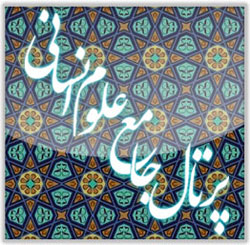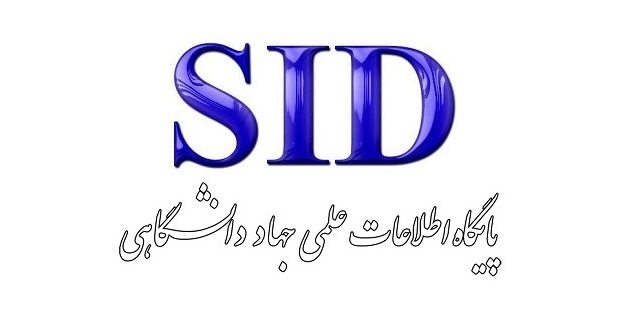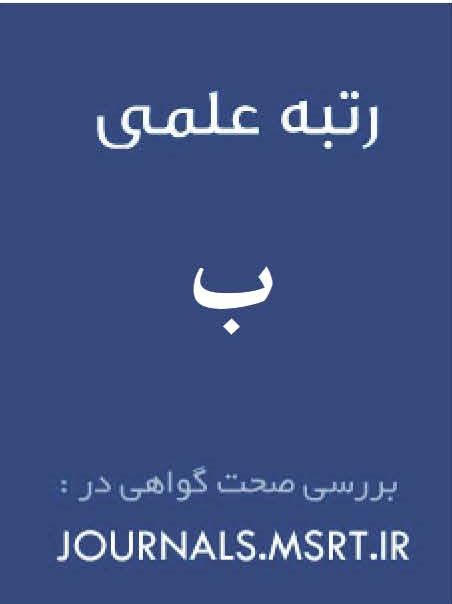Investigating the Role of Commitment and Obligation in the Formation and Development of Iranian Resistance Literature from Its Inception to the Islamic Revolution
Keywords:
Sustainability literature, Commitment and commitment, Islamic Revolution, History of Iranian LiteratureAbstract
Resistance literature, as an influential tool in the history of Iranian literature, has played a significant role in reflecting and promoting social, political, and human issues. This genre of literature, with a focus on resistance against oppression, corruption, and injustice, has consistently served as an instrument for social struggle and raising public awareness. The aim of this study is to examine the impact of Iranian authors’ commitment and obligation in shaping and developing resistance literature from its inception up to the Islamic Revolution, and to analyze how these commitments were utilized for social, political, and cultural critique. This research has been conducted using a descriptive-analytical method and is based on library and documentary sources. A comparative-logical approach was employed to analyze various works. The findings indicate that Iranian resistance literature has played a significant role in promoting justice, freedom, and resistance during critical periods such as the Constitutional Revolution and the Islamic Revolution. Writers, through their commitment to humanistic and social ideals, created works aimed at combating oppression and corruption. These works not only reflected social and cultural aspects but also contributed to the expansion of a culture of resistance and social awareness. The study emphasizes that commitment and obligation have served as central elements in the formation of this body of literature.
Downloads
References
1. Divband MR, Abedi Kiasari AM, editors. A Comparative Study of the Components of Islamic Revolution Literature and Resistance Literature. 2nd National Conference on New Findings in Iranian Culture, History, and Literature; 2022.
2. Bam-Shad T, Mohammadi M, Haji-Zadeh A, editors. Resistance Literature in the Islamic Revolution: Symbolism in Alireza Qazveh's Poetry of Resistance. 4th International Conference on Language and Literature Studies of Nations; 2020: Tehran.
3. Masoumi Nejad E, editor Cultural Policymaking of the Islamic Republic of Iran in Resistance Literature and Islamic Revolution Literature. 6th International Conference on Language and Literature Studies in the Islamic World; 2020: Tehran.
4. Abedi M, Dai M, editors. A Multifaceted Study of Resistance Literature Before and After the Islamic Revolution. 9th International Conference on Management and Humanities Research in Iran; 2021: Tehran.
5. Kheiri M, Akbari M. Manifestations of Resistance Literature in Religious Poetry from the Constitutional Era to the Islamic Revolution. Journal of Sacred Defense Literature. 2020;3(5):85-98.
6. Eslami E, Kurd S, Kurd S, editors. Islamic Awakening in Contemporary Persian and Arabic Poetry. 4th International Conference on Fundamental Research in Language and Literature Studies; 2021: Tehran.
7. Alfi MR. The Impact of Iran's Islamic Revolution on the Sustainability and Dynamism of Islamic Awakening and Power Shifts in the Middle East. Political Strategy Journal. 2017;1(3):43-67.
8. Akbari Shaldareh F. "Fadaei Mazandarani": A Pioneer of Resistance Literature. Ormazd Research Journal. 2021.
9. Jalal Pour JF. Analysis of Kasai's Poetry. Stylistics of Persian Poetry and Prose (Bahar-e Adab). 2016;9(4 (Serial 34)):107-25.
10. Nalbandian R. Elements of Resistance Literature in Ferdowsi's Shahnameh. Applied Research in Management and Humanities. 2022;3(7):160-72.
11. Taheri FS. Rhetorical Analysis of Literary Devices in Naser Khosrow's Odes. Journal of Grammatical and Rhetorical Research. 2022;12(21):199-232.
12. Mohammadi Afshar H. The Reflection of National Epic in Mas'ud Sa'd's Poetry. Iranian Studies Journal. 2010;9(17):157.
13. Alipour M. The Life Story of Ayn al-Qudat Hamadani: Vash; 2018.
14. Alizadeh A, Mirzaei A, editors. Resistance Literature During the Islamic Revolution. 19th National Conference on Management and Humanities Research in Iran; 2024: Tehran.
15. Esmaili S. Rumi: Biography of the Great Mystic and Poet Jalal al-Din Muhammad Balkhi: Bookcheh; 2020.
16. Basiri MS, Agha-Abbasi Z. Khwaju Kermani: Yadegaran-e Homayoun; 2019.
17. Hashemi SH, Hejri A. Biographies of Iranian Poets from the Beginning to the Present: Baba Tahir, Qa'ani, Jami, etc: Farhang va Ghalam; 2010.
18. Miransari A, Taheri-Borzoki SM. The Life, Thought, and Poetry of Mohtasham Kashani2018.
19. Karimpour H. The Life Story of Saeb Tabrizi: Vash; 2018.
20. Beheshti-Seresht M, Rahimi A, Kazemi-Hojab K. The Political Life of Jalal Al-e Ahmad: Imam Khomeini International University (RA) - Qazvin - Faculty of Humanities; 2013.
21. Abedi Z. Isra’iliyyat and Its Influence on Shiite Exegesis. Bayanat (Imam Reza Islamic Research Institute). 2019;26(101):182-200.
22. Mirabagheri-Fard SA, Sharifi-Voldani G, Aghahosseini H, Taghiani-Esfarjani E, Barati-Khansari M, Nasr-Esfahani MR. History of Iranian Literature (Vol. 2): SAMT Organization; 2010.
23. Zarghani SM. The Gradual Formation of Iran's Literary Historiography Tradition. Poetry Studies (Bustan-e Adab). 2012;2(1):75-101.
24. Shojaee A, Nazari M, Mazraati A, Mohammadzadeh E, Shadmani MR, Servati B, et al. Persian Literature: Gaj International; 2017.
25. Refahi S, Nasri A. Analysis of Architectural Elements in Kafka's The Trial. Literary Criticism. 2019;12(48):81-114.
26. Aghanouri N. Fallacies, Appropriations, and False Challenges: Major Obstacles in Resistance Literature Research. Literary Criticism. 2016;9(36):7-39.
Downloads
Published
Submitted
Revised
Accepted
Issue
Section
License
Copyright (c) 2025 Abbas Fatahizadeh (Author); Hossein Esmaili

This work is licensed under a Creative Commons Attribution-NonCommercial 4.0 International License.









